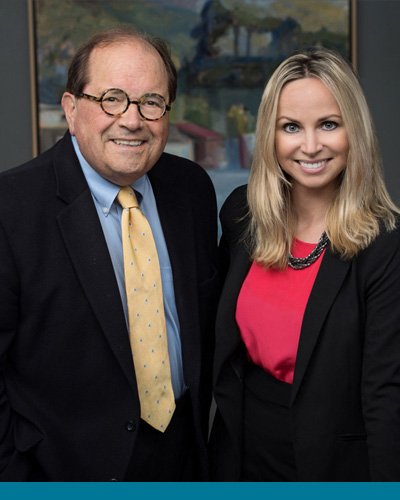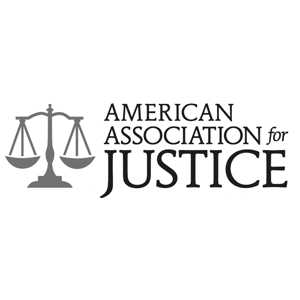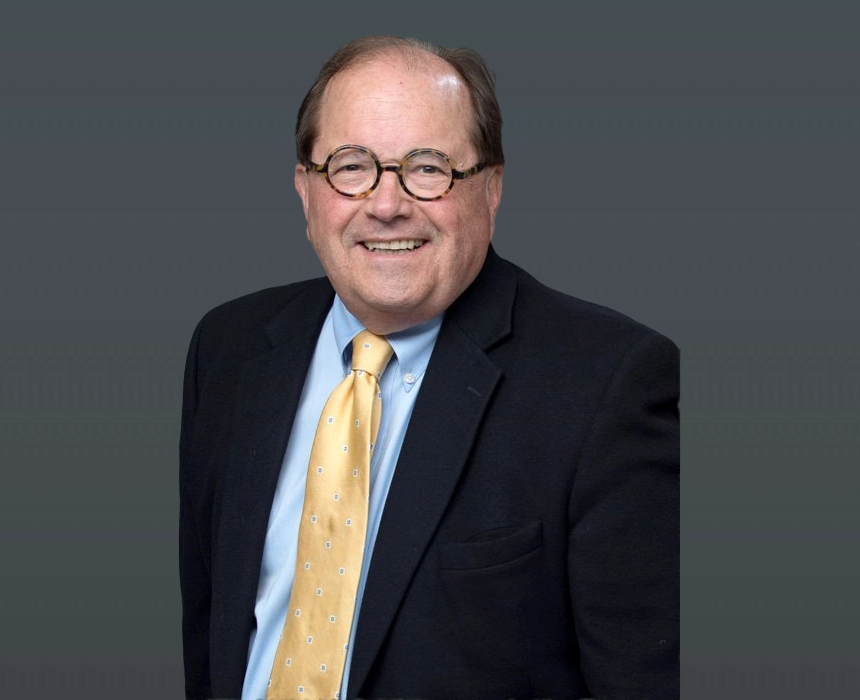Motorcycle accidents in San Francisco can leave riders facing catastrophic injuries, biased insurance adjusters, and an uphill battle for fair compensation. The same winding roads and scenic views that make riding through the Bay Area exhilarating also create unique dangers when drivers fail to share the road safely.
Alexander Law Group LLP has represented injured motorcyclists throughout San Francisco for years, from riders struck by lane-changing vehicles on the Bay Bridge to those hit by distracted drivers on Lombard Street. We understand both the freedom motorcycling represents and the devastating consequences when negligent drivers violate your right to the road.
Our San Francisco motorcycle accident attorneys combine deep knowledge of California motorcycle law with genuine respect for riders, fighting to overcome bias and secure meaningful compensation.
Key Takeaways
- California’s lane-splitting laws under Vehicle Code § 21658.1 allow motorcyclists to filter between lanes when done safely and prudently
- Motorcycle accident victims may recover compensation even when partially at fault under California’s pure comparative negligence law
- Insurance companies frequently blame riders unfairly, making experienced legal representation crucial for pursuing fair compensation
- Road rash, broken bones, and traumatic brain injuries from motorcycle accidents often require extensive medical treatment and long-term care
- Multiple insurance policies may apply to motorcycle accidents, including the rider’s coverage, the at-fault driver’s policy, and uninsured motorist protection
Why Choose Alexander Law Group LLP for Your Motorcycle Accident Case
San Francisco’s unique riding environment demands attorneys who understand both motorcycle culture and local traffic patterns. Our team has handled cases involving every type of motorcycle accident, from highway crashes to urban collisions. We know how fog affects visibility on the Golden Gate Bridge, why certain intersections pose particular risks to riders, and which roads have dangerous conditions that contribute to accidents.
Our extensive network includes accident reconstruction experts who understand motorcycle dynamics, medical professionals experienced in treating road rash and orthopedic injuries, and investigators who know how to counter anti-motorcycle bias. These relationships strengthen your case from the initial investigation through settlement negotiations or trial.
When you call (408) 289-1776, you speak with attorneys who respect your choice to ride and fight against the prejudice motorcyclists often face. We offer flexible meeting options to accommodate your recovery, including hospital visits if needed. Our team handles all aspects of your case while you focus on healing, from managing insurance communications to ensuring medical providers document injuries properly for maximum compensation.
Understanding Motorcycle Accident Compensation
Motorcycle accidents typically result in more severe injuries than car crashes, leading to higher medical costs and longer recovery periods. Emergency treatment at San Francisco General or UCSF Trauma Center can quickly reach six figures. Skin graft surgeries for road rash, orthopedic procedures for fractures, and rehabilitation programs create ongoing expenses that insurance companies may undervalue.
Compensation in motorcycle accident cases falls into several categories under California law. Each requires specific documentation and often expert testimony to establish full value:
- Medical expenses: Emergency care, surgeries, medications, physical therapy, and future treatment needs
- Economic losses: Lost wages, reduced earning capacity, motorcycle repair or replacement, and damaged gear
- Non-economic damages: Pain and suffering, scarring and disfigurement, emotional distress, and loss of life enjoyment

Understanding these damage categories helps you identify when insurance offers fall short of addressing your true losses.
Our attorneys work with medical and economic experts when appropriate to document the full impact of your injuries. Plastic surgeons might explain the need for scar revision procedures, orthopedic specialists could detail future joint replacements, and vocational experts may assess how injuries affect your ability to work. This thorough documentation may reveal damages that significantly exceed initial insurance evaluations.
Common Causes of San Francisco Motorcycle Accidents
Left-Turn Collisions
Drivers turning left across traffic cause a disproportionate number of motorcycle accidents. At intersections throughout San Francisco from Van Ness and Market to 19th Avenue crossings drivers fail to see oncoming motorcycles or misjudge their speed. These crashes often result in severe injuries as riders have no time to avoid impact.
Lane Change and Blind Spot Accidents
Heavy traffic on highways 101 and 280 creates dangerous conditions when drivers change lanes without checking blind spots. Motorcycles’ smaller profiles make them harder to see, but this doesn’t excuse drivers from their duty to check carefully before moving. California law requires drivers to signal and ensure lanes are clear before changing.
Rear-End Collisions
Stop-and-go traffic on the Bay Bridge and throughout downtown creates rear-end collision risks. While motorcyclists can legally split lanes in California, they remain vulnerable when traffic suddenly stops. Distracted drivers checking phones or GPS devices may not notice stopped motorcycles until impact occurs.
Road Hazard Accidents
San Francisco’s streets present unique challenges for motorcyclists. Potholes on poorly maintained roads, slick Muni tracks, construction debris, and oil slicks create hazards that barely affect cars but can cause motorcycles to lose control. When poor road maintenance contributes to accidents, government entities may share liability alongside negligent drivers.
Additional accident types that affect motorcyclists include:
- Dooring incidents: Parked drivers opening doors into bike lanes without checking for approaching motorcycles
- Intersection collisions: Drivers running red lights or failing to yield right-of-way at stop signs
- Drunk driving crashes: Impaired drivers who strike motorcyclists face both criminal charges and civil liability
- Hit-and-run accidents: We work with investigators to identify fleeing drivers and pursue uninsured motorist claims when necessary
California Motorcycle Laws and Rider Rights
Lane Splitting Regulations
California remains the only state explicitly allowing lane splitting through Vehicle Code § 21658.1. This law permits motorcycles to travel between lanes of stopped or slow-moving traffic when done safely. The California Highway Patrol provides guidelines suggesting lane splitting only when traffic moves below 30 mph and limiting speed differential to 10 mph above surrounding traffic.
Insurance companies often blame accidents on lane splitting even when riders follow these guidelines. Our attorneys understand how to demonstrate safe lane splitting practices and shift focus to the negligent actions that actually caused the collision.
Helmet Laws and Compensation
California Vehicle Code § 27803 requires all motorcycle riders and passengers to wear DOT-approved helmets. While helmet use is mandatory, not wearing a helmet doesn’t automatically bar compensation for injuries unrelated to head trauma. Insurance companies may try to use helmet non-compliance to reduce all damages, but California law limits this reduction to injuries the helmet would have prevented.
Comparative Negligence in Motorcycle Cases
Under California’s pure comparative negligence system, motorcyclists can recover damages even when they are partially at fault. Your compensation reduces by your percentage of fault, but doesn’t disappear entirely.
Common Injuries in Motorcycle Accidents
Road Rash and Skin Injuries

Road rash sounds minor but can cause severe, lasting damage. Deep abrasions require debridement, skin grafts, and lengthy wound care. Infection risks remain high during healing. Scarring often requires multiple revision surgeries, particularly for injuries on visible areas like the hands, arms, and face. These injuries cause both physical pain and emotional distress from disfigurement.
Orthopedic and Bone Injuries
The force of motorcycle impacts frequently causes complex fractures that require surgical repair with plates, screws, or rods. Compound fractures where bones pierce skin carry infection risks and longer healing times. Joint injuries may lead to early arthritis or require eventual replacement surgeries. Upper extremity injuries are particularly common as riders instinctively extend their arms during crashes.
Traumatic Brain Injuries
Even helmeted riders can suffer traumatic brain injuries from impact forces. Concussions, contusions, and diffuse axonal injuries might affect cognitive function, emotional regulation, and physical abilities. According to the National Institute of Neurological Disorders and Stroke, mild TBI can cause lasting problems with memory, concentration, and mood, requiring ongoing treatment.
Spinal Cord Injuries
Motorcycle accidents can damage spinal cords through direct impact or violent twisting motions. These injuries range from herniated discs causing chronic pain to complete paralysis requiring lifetime care. Incomplete spinal injuries may allow some function but still dramatically alter life activities and employment capabilities.
Critical Time Limits for Motorcycle Accident Claims
California Code of Civil Procedure § 335.1 provides two years from the accident date to file personal injury lawsuits. This deadline applies regardless of ongoing treatment or whether the full extent of injuries is known. Missing this deadline typically eliminates your right to compensation, making prompt action essential.
When government entities bear responsibility—such as dangerous road conditions or malfunctioning traffic signals—California Government Code § 911.2 requires filing administrative claims within six months. This shortened timeline catches many victims unaware.
Beyond legal deadlines, practical considerations make early action crucial. Accident scene evidence disappears quickly, surveillance footage gets overwritten, and witnesses become harder to locate. Physical evidence like skid marks and debris patterns help reconstruct accidents. Starting your case promptly preserves these crucial elements while memories remain fresh.
Fighting Insurance Company Bias
Overcoming Anti-Motorcycle Prejudice
Insurance adjusters often approach motorcycle claims with inherent bias, assuming riders are reckless or primarily at fault. They may claim you were speeding without evidence, argue lane splitting caused the accident regardless of actual circumstances, or minimize injuries by suggesting riding itself is an assumption of risk.
These tactics can take advantage of injured riders who are already dealing with serious injuries and financial stress. Quick settlement offers that seem substantial may actually fall far short of covering long-term medical needs and other losses.
Protecting Your Rights Through Legal Representation
Our involvement may shift how insurance companies approach your claim. We prevent direct contact between adjusters and clients, stopping attempts to elicit damaging statements. Our team may also work with accident reconstruction experts who can demonstrate the other driver’s fault through physical evidence and witness testimony.
We calculate damages based on the full scope of your injuries and losses, not insurance company formulas that undervalue motorcycle accident claims. This includes documenting future medical needs, scarring impacts, and lost enjoyment of activities like riding. Thorough preparation may support stronger settlement discussions with insurers.
Steps After a Motorcycle Accident
Immediate Priorities
Your health comes first—accept emergency medical treatment even if adrenaline masks pain initially. Many serious injuries don’t manifest symptoms immediately. Follow all medical advice and attend every appointment, as gaps in treatment give insurance companies ammunition to minimize claims.
Document everything possible about the accident and injuries. Photograph the accident scene from multiple angles, your injuries as they heal, and all damaged equipment. Keep your damaged helmet and riding gear as evidence. Obtain the police report and contact information for any witnesses.
Building Your Case
Contact Alexander Law Group LLP at (408) 289-1776 before giving statements to insurance companies. What seems like a routine conversation can damage your claim if statements are misinterpreted or taken out of context. We prepare you for any necessary communications and attend when possible.
Track all accident-related expenses meticulously. This includes:

- Medical costs: Bills, prescriptions, medical equipment, and travel to appointments
- Lost income: Wages, benefits, and self-employment income lost during recovery
- Property damage: Motorcycle repairs or replacement value, damaged gear, and personal items
- Daily impact: Assistance needed with household tasks, modifications to living space, and transportation alternatives
This documentation supports comprehensive damage calculations that address your actual losses rather than insurance company estimates.
FAQ for San Francisco Motorcycle Accident Lawyer
What if I was lane splitting when the accident occurred?
Lane splitting is legal in California when done safely and prudently. The fact you were lane splitting doesn’t automatically make you at fault. We analyze whether you followed CHP guidelines, traffic conditions at the time, and the other driver’s actions. Many lane splitting accidents occur when drivers change lanes without signaling or checking mirrors—violations that establish their primary fault regardless of lane splitting.
How does not having collision coverage affect my case?
Lacking collision coverage doesn’t impact your ability to pursue compensation from at-fault drivers. Their liability insurance should cover your motorcycle damage along with injuries. If they’re uninsured or underinsured, your uninsured motorist coverage may apply. We explore all available insurance sources regardless of your collision coverage status.
Can I recover damages if I was riding a borrowed motorcycle?
Yes, you can pursue compensation for injuries regardless of motorcycle ownership. The at-fault driver’s liability extends to any lawful road user they injure. Insurance coverage may come from multiple sources: the motorcycle owner’s policy, your auto insurance, and the at-fault driver’s coverage. We analyze all policies to identify available coverage.
What evidence is most important in motorcycle accident cases?
Physical evidence often proves crucial—skid marks showing braking attempts, vehicle damage patterns indicating impact angles, and surveillance footage capturing the collision. Witness statements carry particular weight in overcoming bias. Medical records linking specific injuries to accident forces help establish causation. We also use helmet damage analysis and motorcycle computer data when available to reconstruct accidents accurately.
Should I accept the insurance company’s property damage offer while my injury claim is pending?
Property damage and injury claims can be settled separately, but accepting any settlement requires careful consideration. Insurance companies sometimes use property damage settlements to establish rapport before minimizing injury claims.
We can review any property damage offers to ensure they fully compensate your motorcycle’s value and don’t compromise your injury claim through problematic language or admissions.
What happens if the driver who hit me has no insurance or fled the scene?
If a driver is uninsured or you are the victim of a hit-and-run, you can still pursue compensation through your own insurance policy’s Uninsured/Underinsured Motorist (UM/UIM) coverage. This is a critical protection for motorcyclists.
We can review your policy to determine your coverage limits and file a UM/UIM claim on your behalf. We also work with investigators to try and identify hit-and-run drivers.
How is the value of my damaged motorcycle gear calculated?
Your riding gear—helmet, jacket, gloves, and boots—is part of your property damage claim. You have a right to compensation for the replacement value of this gear.
We document the original cost and condition of your equipment to ensure the insurance company’s offer is fair.
Always save your damaged gear, especially your helmet, as it can serve as important evidence.
I have health insurance. Why do I need a lawyer to handle medical bills?
Even with health insurance, you may face significant out-of-pocket costs like deductibles and copays. Furthermore, your health insurer may place a lien on your settlement, meaning they have a right to a portion of any money you recover.
We work to negotiate these liens down, which can substantially increase the amount of money you ultimately receive. We also ensure that any settlement accounts for all future medical care your health insurance may not cover.
Does the City of San Francisco have liability for my accident if a road hazard was the cause?
Yes, in some cases. If your accident resulted from a dangerous road condition like a large pothole, poorly marked construction zone, or malfunctioning traffic signal, the government entity responsible for maintaining that road may need to pay your damages. However, claims against government entities in California have a very short deadline—you must file a formal claim within six months of the accident.
Contact an attorney immediately if you suspect a public entity shares fault for your crash. You can find more information on the claims process on the San Francisco City Attorney’s website.
Moving Forward After Your Motorcycle Accident
Motorcycle accidents change lives instantly—from the physical trauma of impact to the financial stress of medical bills and lost income. While you focus on healing, you need legal advocates who understand both the unique challenges facing injured riders and how to overcome insurance company bias.

Alexander Law Group LLP brings years of experience representing motorcyclists throughout San Francisco. We understand the riding community, respect your choice to ride, and fight against prejudice that too often denies riders fair compensation. Our commitment extends beyond legal representation to genuine support during recovery.
Don’t let insurance companies blame you unfairly or pressure you into inadequate settlements. California law protects motorcyclists’ rights to compensation, but these protections require knowledgeable advocacy to enforce. Contact San Francisco personal injury attorney at (408) 289-1776 today for your free consultation. Let us show you why injured motorcyclists across San Francisco trust us to pursue recovery aligned with your medical, financial, and personal needs under California law.
Alexander Law Group, LLP – San Francisco Office
Address:1 Sansome St., Ste. 3500
San Francisco, CA 94104
Phone: 408-289-1776


